
Interaction Design and Architectures
Scope & Guideline
Exploring the Future of Interaction and Design
Introduction
Aims and Scopes
- User-Centered Interaction Design:
The journal emphasizes approaches that prioritize user needs and experiences in the design process, aiming to create intuitive and engaging interactive systems. - Educational Technology and Learning Ecosystems:
IxD&A explores the integration of technology in educational settings, highlighting innovative learning ecosystems that support diverse learning styles and enhance educational outcomes. - Participatory and Inclusive Design:
The journal promotes participatory design methodologies that involve stakeholders in the design process, ensuring that solutions are inclusive and address the needs of various user groups. - Sustainability and Social Innovation:
Research that addresses sustainability in design practices and the role of technology in promoting social innovation is a key focus, aiming to create solutions that benefit communities and the environment. - Emerging Technologies in Design:
IxD&A investigates the implications of emerging technologies such as AI, VR, and AR in design practices, emphasizing their potential to transform user experiences and interactions.
Trending and Emerging
- Integration of AI and Machine Learning:
Recent studies increasingly explore the integration of AI and machine learning in design processes and educational environments, highlighting their potential to enhance personalization and user engagement. - Game-Based Learning and Gamification:
There is a growing interest in game-based learning and gamification strategies, particularly in educational contexts, as researchers investigate their efficacy in improving motivation and learning outcomes. - Smart Learning Ecosystems:
The concept of smart learning ecosystems is emerging as a significant theme, focusing on the interplay between technology, environment, and learning, and how these elements can create adaptive educational experiences. - Emotional and Social Interaction Design:
Research on emotional and social aspects of interaction design has gained prominence, with an emphasis on how technology can foster social connections and emotional well-being among users. - Sustainability in Design Practices:
There is an increasing focus on sustainability within design practices, with research examining how design can contribute to environmental sustainability and social responsibility in various contexts.
Declining or Waning
- Traditional HCI Approaches:
There has been a noticeable reduction in publications focusing solely on traditional Human-Computer Interaction (HCI) methodologies, as the field increasingly embraces interdisciplinary approaches that integrate design, psychology, and technology. - Static Learning Models:
Research centered around static or traditional learning models is declining, with a shift towards dynamic, adaptive learning ecosystems that reflect contemporary educational needs. - Isolated Technology Applications:
Papers that focus merely on isolated applications of technology without considering broader social or environmental contexts have become less frequent, as the journal seeks to promote holistic and integrative approaches. - Non-Participatory Design Practices:
There is a decreasing emphasis on design practices that do not involve stakeholder engagement, reflecting a broader trend towards participatory and co-design methodologies. - Generalized User Experience Studies:
Studies offering generalized insights into user experience without specific contextual applications or innovative frameworks are less common, as the journal encourages research with practical implications and tailored approaches.
Similar Journals

She Ji-The Journal of Design Economics and Innovation
Transforming Ideas into Value-Creating InnovationsShe Ji - The Journal of Design Economics and Innovation is a pioneering Open Access journal published by Elsevier since 2015, based in the Netherlands. With its unique focus on the intersection of design, economics, and innovation, this journal serves as a vital platform for researchers, professionals, and students who are keen on understanding the complexities of designing value-creating innovations. Consistently recognized for its high impact, She Ji holds a prestigious Q1 quartile ranking in both Economics and Education, while maintaining a strong presence in Management of Technology and Innovation and the Visual Arts sector. This reflects its commitment to fostering interdisciplinary dialogue and advancing knowledge in the rapidly evolving fields of design and economic theory. Researchers seeking to disseminate their work can benefit from the journal's robust open access model, ensuring wide visibility and accessibility to their findings. With a commitment to excellence, She Ji continues to shape thought leadership in its field and is an essential resource for anyone involved in the integration of design thinking with economic innovation.
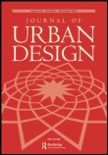
Journal of Urban Design
Transforming urban landscapes through innovative design.Journal of Urban Design, published by Routledge Journals, Taylor & Francis Ltd, stands at the forefront of academia, providing a critical forum for discourse on contemporary urban design practices and theories since its inception in 1996. With an impressive impact factor and consistently ranking in the Q1 category across multiple fields—namely Arts and Humanities, Geography, Planning and Development, and Urban Studies—this journal is recognized for its significant contributions to the understanding and shaping of urban environments. Although it does not offer open access, its meticulously curated content remains accessible to those keen on exploring innovative urban design thinking. Researchers, professionals, and students alike will find valuable insights and methodologies aimed at enhancing urban spaces globally, making the journal a vital resource for those committed to the evolution of urban planning and sustainable development strategies.

Journal of Usability Studies
Exploring the intersection of technology and user satisfaction.The Journal of Usability Studies, published by the USERS EXPERIENCE PROFESSIONAL ASSOCIATION, is a pivotal platform for researchers and professionals dedicated to advancing the field of usability and user experience design. With an ISSN of 1931-3357, this journal offers a collection of peer-reviewed articles that explore innovative methodologies, emerging technologies, and applied research in usability studies. Though it operates under a traditional access model, the journal remains dedicated to fostering a detailed understanding of how users interact with systems and products. The Journal of Usability Studies is instrumental for those aiming to enhance user satisfaction through research-backed insights, making it a vital resource for academics, practitioners, and students seeking to contribute to the evolving discourse in human-computer interaction and usability engineering.

Multimodal Technologies and Interaction
Unlocking the Potential of Multimodal Systems.Multimodal Technologies and Interaction, published by MDPI since 2017, is an esteemed open-access journal based in Switzerland, dedicated to the exploration and advancement of innovative multimodal systems that enhance user experience across various digital platforms. With its commitment to disseminating high-quality research in diverse areas such as Computer Networks and Communications, Human-Computer Interaction, and Neuroscience, the journal has rapidly established itself within the academic community, achieving a commendable position in Scopus rankings including Q2 in both Computer Networks and Communications and Computer Science Applications. As an essential resource for researchers, professionals, and students alike, Multimodal Technologies and Interaction fosters interdisciplinary dialogue and supports the development of cutting-edge technologies, ensuring that advancements in multimodal interaction are accessible to a global audience. Scholars can benefit from its Open Access format, allowing unrestricted access to influential studies that shape the future of technology and interaction design.
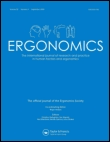
ERGONOMICS
Enhancing health and safety through research.ERGONOMICS is a premier journal that serves the dynamic fields of Human Factors and Ergonomics, as well as Physical Therapy, Sports Therapy, and Rehabilitation. Published by Taylor & Francis Ltd in the United Kingdom, this journal not only boasts a commendable impact factor but also holds a Q2 quartile ranking across its categories, underscoring its influence and academic rigor. With a convergence of significant research dating back to 1957, ERGONOMICS provides a multifaceted platform for the dissemination and discussion of innovative findings that enhance the interaction between people and their environments. Although the journal does not offer Open Access options, it remains a vital resource for researchers, professionals, and students seeking to deepen their understanding of ergonomic principles and applications. Positioned at the intersection of health and human behavior, ERGONOMICS is dedicated to advancing knowledge and promoting best practices in an era where the demand for safe and efficient work environments continues to grow.
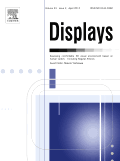
DISPLAYS
Innovating at the Intersection of Engineering and InteractionDISPLAYS is a prestigious journal published by Elsevier that focuses on the dynamic intersection of Electrical and Electronic Engineering, Hardware and Architecture, and Human-Computer Interaction. Since its inception in 1979, the journal has made significant contributions to advancing the field, currently holding a notable impact factor and ranking within the Q2 category across multiple disciplines, including Electrical and Electronic Engineering, Hardware and Architecture, and Human-Computer Interaction. With its broad scope, DISPLAYS is dedicated to publishing high-quality research that inspires innovation in display technology and its applications. Researchers and professionals benefit from access to cutting-edge findings in the realm of display systems, which are integral to the evolving landscape of digital interaction. Operating without an open access option, the journal ensures rigorous peer review, maintaining the highest standards of academic integrity and research quality. Positioned in the heart of the Netherlands, DISPLAYS continues to play a critical role in shaping future advancements, making it an essential read for anyone committed to these vital fields of study.
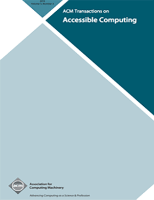
ACM Transactions on Accessible Computing
Advancing inclusivity in technology.ACM Transactions on Accessible Computing, with ISSN 1936-7228 and E-ISSN 1936-7236, is a prestigious journal published by the Association for Computing Machinery. Established to advance the field of accessible computing, this journal plays a critical role in promoting research that enhances the usability of computer technology for individuals with diverse accessibility needs. Its impact is reflected in its 2023 Scopus rankings, placing it in the Q2 category for Computer Science Applications and Q3 for Human-Computer Interaction, making it a significant resource for researchers and practitioners alike. With an ongoing publication timeline from 2008 through 2024, the journal not only contributes to theoretical advancements but also addresses practical implications in the realm of inclusive design and innovation. Although not Open Access, the journal is a vital forum for disseminating cutting-edge research, ensuring that advancements in technology are accessible to all.

Design Studies
Fostering Creativity in Design, Architecture, and EngineeringDesign Studies, published by Elsevier Science Ltd, is an esteemed international journal, recognized for its pivotal contributions to the fields of design, architecture, and engineering. With an impressive history spanning from 1979 to 2024, this journal holds top positions in various categories, including Q1 rankings in Architecture, Arts and Humanities, and Engineering, indicating its high impact and relevance within academic circles. It boasts a notable Scopus ranking of #3 in Engineering & Architecture and #10 in General Social Sciences, demonstrating its multidisciplinary influence and the value it brings to both theoretical and practical aspects of design. Although not an open-access publication, the journal provides comprehensive access options to facilitate the dissemination of groundbreaking research. Catering to researchers, professionals, and students alike, Design Studies aims to foster innovation by publishing high-quality articles that explore contemporary design challenges and solutions, making it an essential resource for those invested in advancing knowledge in this dynamic field.
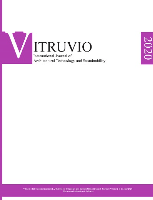
VITRUVIO-International Journal of Architectural Technology and Sustainability
Shaping the future of architecture through sustainable practices.Welcome to the VITRUVIO-International Journal of Architectural Technology and Sustainability, a leading open-access journal published by UNIV POLITECNICA VALENCIA, EDITORIAL UPV since 2015 and based in Spain. With its ISSN 2444-9091, this journal is dedicated to advancing the field of architectural technology and sustainability, providing a vital platform for researchers, professionals, and students alike. The journal has made significant strides in the academic landscape, achieving a Q3 ranking in Architecture and a Q4 ranking in Building and Construction for 2023. It features a diverse range of scholarly articles that explore innovative practices, cutting-edge research, and sustainable solutions in architecture. With a Scopus ranking placing it at #70/189 in Architecture and #161/223 in Building and Construction, it is positioned within the 63rd percentile and 28th percentile respectively, demonstrating its increasing impact in these vital fields. We invite you to engage with our content and contribute to the ongoing discourse around sustainability in architectural practice.
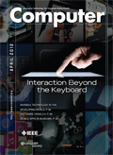
COMPUTER
Illuminating Trends in Computer Science for a Digital Age.COMPUTER, published by the IEEE COMPUTER SOC, stands as a pivotal resource in the field of computer science, encompassing a broad range of topics and innovations within the industry. With an ISSN of 0018-9162 and E-ISSN 1558-0814, this esteemed journal features high-impact research articles that contribute significantly to the advancement of technology, demonstrating a prestigious Q1 classification in the Computer Science (miscellaneous) category for 2023. Positioned within the top percentile of Scopus rankings (ranked #84 out of 232), COMPUTER serves as an essential platform for sharing pioneering ideas and emerging trends that shape the future of computing. Although it does not currently offer open access, the journal's rigorous peer-review process ensures the publication of high-quality content. Researchers, professionals, and students alike will find invaluable insights into computer science developments from 1970 through 2024, making it a vital tool for anyone dedicated to this ever-evolving field.